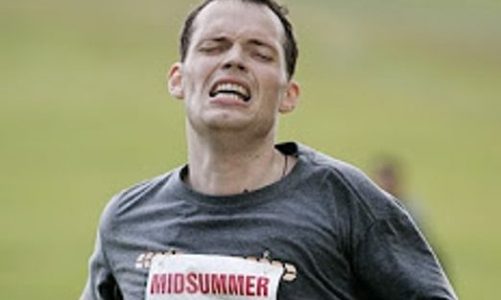Whenever I get asked about the subject of my PhD I have to suppress the urge to launch into a sort of paranoid defence of the sociological relevance and intellectual seriousness of my research topic. Running – and sport as a whole – seems to lack the gravitas of heavyweight sociological themes like class, racism, power or poverty. I hear myself excusing the subject matter as an ‘interesting prism’ through which to examine wider, deeper social issues or else gloss over the subject matter altogether in favour of explaining more esoteric aspects of the research design or data analysis. No doubt this has a lot to do with my own insecurities, but my reticence needs to be understood in the context of lingering academic prejudices surrounding the study of sport in sociology.
The seeds of this chauvinism were sown early in our discipline’s history, when classical sociologists worked hard to demarcate their own distinct zone of expertise in contrast to more established sciences. Part of this process was to prise apart the study of ‘social’ and ‘natural’ realms, leaving nature – including the human body – to the biologists and establishing sociology’s authority over a social world hacked off at its biological roots. This division, underpinned by Descartes’ ontological dichotomy of mind and body, shaped the development of sociology for many decades, with the result that body-centric topics like sport were largely neglected. And even today, following the ‘somatic turn’ in sociology, sport as a research topic retains a slightly frivolous image. According to sociologist Ben Carrington, ‘sport both hyper-accentuates and finds itself on the wrong side of a supposedly insurmountable (and deeply ‘classed’) dualism between useless physicality and purposeful intellectualism’. As a result, according to Pierre Bourdieu ‘there are, on the one hand, those who know sport very well on a physical level but do not know how to talk about it and, on the other hand, those who know sport very poorly on a practical level and who could talk about it, but disdain doing so, or do so without rhyme or reason’.
The sociology of sport’s awkward academic position is neatly embodied in the person of Loic Wacquant, who, despite having authored a highly respected study of boxing in Chicago, remained at pains to deny that his subject was the sport itself, but rather ‘the twofold incorporation of social structures: the collective creation of proficient bodies and the ingenuous unfolding of the socially constituted powers they harbor’. Elsewhere he described sport as ‘a lowly object in social life’ and said that following the success of his boxing study, his association with Pierre Bourdieu had saved him from ‘disappearing into the oblivion of the sociology of sport’. Given prevailing prejudices, I can empathise with Wacquant’s resistance to attempts to ‘ghettoise’ his work, and sympathise with the idea that sport can be studied as a manifestation of universal social processes rather than simply in and of itself. However, I would also argue that sport, and running in particular, are important social phenomena, and that they do deserve study in their own right. For sociology to neglect or downgrade sport, a category of social action as ubiquitous to and specifically shaped by our times as any other seems to me a failure of sociological objectivity and a kind of wilful myopia. If as sociologists we aim to discern the deep bone structure beneath the surface features of society’s fleshy face it is vital that we subject all of its aspects to serious sociological scrutiny, not just those we a priori deem worthy of attention. After all, would a survey of the culture of the Roman Empire be complete without reference to the amphitheatre and hippodrome? Or of classical Greece without mention of the gymnasium or Olympic Games?
Perhaps sport is doubly cursed as a sociological topic; not only is it an intrinsically embodied activity, it is also a form of leisure. Leisure time, commonly understood, is what is left over once the serious business of discharging responsibilities at work and in the home is complete. It is for relaxing (i.e. recharging in order to return to the fray), or for participating in frivolous hobbies and pastimes whose role is simply to consume time – a necessity because, according to the philosopher, Lars Svendsen, ‘we cannot face tackling time that is ‘empty’’. Leisure activities then, can be seen as little more than ‘filler’, plugging the gaps and providing a rest between bouts of engagement in serious, attention worthy work and responsibility. Even some of the most respected sociologists who have written extensively about sport and leisure have perpetuated this ‘sideshow’ perspective. Norbert Elias, drawing on Freudian psychology, conceptualised sport as an outlet for ‘uncivilized’ pre-social drives. Playing sport, they explained, was a way of lancing a boil that could otherwise infect the body politic and interfere with the smooth running of modern, rational society. And Thorstein Veblen, writing at the end of the Victorian era, saw leisure as an arena for essentially decorative and wasteful status competition rather than for any kind of significant fulfilment.
And yet, other voices have argued for a quite different understanding of the centrality and meaning of leisure time activities. Over two thousand years ago, Aristotle asserted that ‘the first principle of all action is leisure. Both are required, but leisure is better than occupation and is its end’. Johan Huizinga’s Homo Ludens, written in 1938, argued that the roots of all human culture lie in play. German philosopher, Josef Pieper stated that leisure is ‘the basis of culture’, and ‘the preserve of freedom, of education and culture, and of that undiminished humanity which views the world as a whole’. And some Marxists have used similar arguments, contrasting the freedom and authenticity available through leisure with the alienation and degradation of factory work. These perspectives, in which leisure is associated with all that is best and meaningful in human existence, suggest that access to leisure – and the decisions we make about how we use it -are vital to human flourishing and to pursuing the good life. Thus understood, for sociologists, leisure presents an unparalleled window on the subjectivities – the fundamental values, needs, identities and aspirations – of its participants, and hence on the characteristics of the wider culture of which they are part.
Needless to say, it is with the ideas propounded by these ‘pro-leisure’ scholars that I align myself. And despite my misgivings about others’ prejudices regarding the worthwhileness of spending five years of my life studying running, I hope, through this website as well as my wider research, to demonstrate that it is not only an important and significant social phenomenon deserving of sociological attention in itself, but also a fascinating window on some of the wider cultural concerns that define our age.



